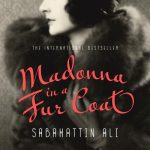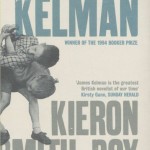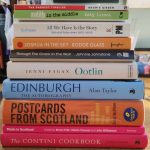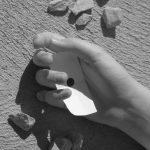From Rebecca Smith’s enthralling memoir to Michel Faber’s love letter to music, Alistair Braidwood sifts through the year’s most compelling titles
Support independent, non-corporate media.
Donate here!
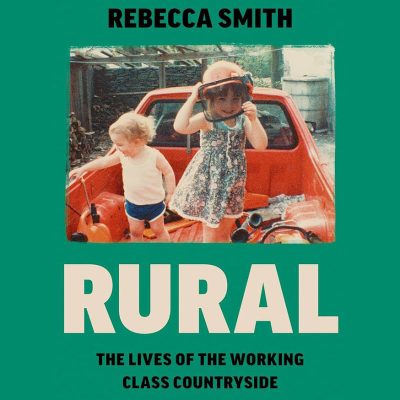
Rural: The Lives of the Working Class Countryside by Rebecca Smith, published by William Collins
Rebecca Smith’s Rural: The Lives of the Working Class Countryside is part memoir, part sociopolitical examination, as Smith uses her own experiences, and those of her family, as the inspiration to examine the economic and class distinctions involved in rural living and, more pertinently, working. This division works well as readers are drawn in by the childhood and teenage anecdotes and recollections, but are made to reflect on the realities faced by those who work the land rather than those who own it. What really makes Rural such an enthralling read is the writing itself which is thoughtful, often lyrical, with a warmth which is perhaps unexpected.
Writing Landscape by Linda Cracknell, published by Saraband
Writing Landscape is the first in Saraband Books’ ‘In The Moment’ series, and it sets the bar high. Linda Cracknell has always written about the natural world, in novels such as Call Of The Undertow and The Other Side of Stone, and elsewhere, and this short collection of essays gets to the heart of that relationship, proving that nature is not simply a subject or setting for Cracknell, but integral to how she works and who she is. It also investigates the long and rich history of nature writing more generally, particularly in literature. An inspirational read which will have you viewing your own surroundings with new eyes.
Steeple Chasing: Around Britain By Church by Peter Ross, published by Headline
Peter Ross has a well-deserved reputation as a writer and journalist who eschews the sensational, salacious and scandalous, adjectives often ascribed to modern journalism. Instead he opts for investigations into the geography and history of these islands by travelling to places, and to meet people, rarely reported on. His book Steeple Chasing: Around Britain By Church is the latest example of this. In it he investigates buildings and monuments with associations to the past (at least in terms of their original use) as the starting point to examine not just how Britain has changed but also what has endured, with these houses of the holy leaving an indelible mark not only on the landscape but on people as well.
The Funny Thing About Death… by Jo Caulfield, published by Polygon
Stand-up comedian Jo Caulfield’s The Funny Thing About Death… weaves memoir and memory with the unfolding story of her sister Annie’s cancer – refusing to let that illness define Annie while coming to terms with her own complex feelings. She examines their relationship with honesty and insight, discovering more about her sister through her friends and other family members than she had done previously. Caulfield feels that even in death Annie was helping her cope (if that’s the right word) by gifting her a wider support network; people who knew Annie arguably as well as she did, but alternative versions, conferring on Caulfield a greater understanding of herself and others. Simultaneously heart-breaking and life-affirming, The Funny Thing About Death… is a love letter to her sister which overflows with empathy, and it will help others come to terms with their own grief and loss.
All profits from The Funny Thing About Death… go to Macmillan Cancer Support.
It Came From The Closet: Queer Reflections on Horror. Edited by by Joe Vallese, published by Saraband
In It Came From the Closet: Queer Reflections on Horror, 26 queer and trans writers ruminate on selected horror movies which have left their mark, and helped gain a better understanding of themselves and others. Horror film aficionados know that genre films are rarely as simple as they may appear, often working on a number of levels which even their makers would find surprising. It Came From The Closet isn’t really about the films, but the experiences and lives of the authors. It’s all too rare to read a book which generates greater understanding of others in such an open, honest and informed manner.
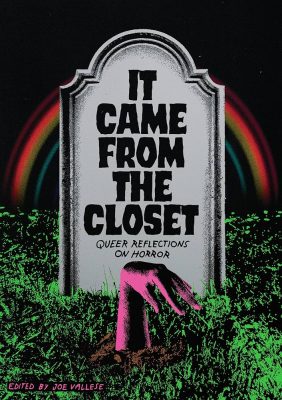
Being Gregory: Bill Forsyth, Gregory’s Girl, the lot… by Tim Blanchard, published by Crackle + Hiss
You wait for a book about the films of Bill Forsyth to come along, then two come along at once. Jonathan Melville’s Local Hero: Making A Scottish Classic concentrates on that great film, while also giving insight into how Forsyth works. Tim Blanchard’s Being Gregory: Bill Forsyth, Gregory’s Girl, the lot… takes a wider view, looking at the enduring influence of Gregory’s Girl, and that of Forsyth more generally. By interviewing many of those who were there at the time, especially members of the Glasgow Youth Theatre, and visiting present day Cumbernauld, Blanchard goes in deep and the reader reaps the rewards. There’s loads of interesting information that even the most devout fan of Bill Forsyth might not be aware (his close friendship with artist Steven Campbell, for instance) and every page seems to contain a fascinating fact. Being Gregory is clearly an intensely personal labour of love for Tim Blanchard, but for fellow Forsyth fans this is essential reading.
Ashes & Stones by Allyson Shaw, published by Sceptre
Allyson Shaw’’s book Ashes & Stones: A Scottish Journey in Search of Witches and Witness examines the Scottish witch hunts and trials of the 16th-18th century (when thousands were persecuted in their name) uncovering stories untold, and bearing witness to the people behind them. The book is part historical investigation, part travelogue, part memoir, with Shaw unearthing, sometimes literally, various landmarks and memorials, including standing stones, trails, mazes, caves, and other places used or created to mark the atrocities of the past. It links Allyson Shaw’s own experiences with those of other women and invites readers to do likewise. This is not the book you think it is, and is all the better for it.
Magnaccioni: My Food… My Italy by Anne Pia, published by Luath Press
Hands down my favourite cookbook of the year, Magnaccioni: My Food… My Italy is that and so much more. This is a book not to be simply read and admired, but one destined to become a close companion in the kitchen, simultaneously feeding the body and soul. With prose which demands to be read and recipes just begging to be cooked, all written with a style and poetic flair which we have come to expect from Anne Pia, Magnaccioni stands alongside the work of Diane Henry, Simon Hopkinson, and Nigel Slater, writers whose cookbooks you return to again and again. It is a hymn to eating well as part of living life to the full. This appetite is evident on every page, inspiring not only conversations about food and drink, but music, philosophy, history, friends, and family
Already, Too Late: A Boyhood Memoir by Carl MacDougall, published by Luath Press
There were a number of memorable memoirs from literary figures published in 2023 (John Niven’s O Brother and Don Paterson’s Toy Fights: A Boyhood get an honourable mention here) but there were was one which stood out for me, from one of my favourite Scottish writers. Although not as well know as many of his contemporaries, Carl MacDougall was one of the most influential Scottish writers of the 20th century, one whose achievements came not only as a writer, but also educator, journalist, critic, television presenter, president of Scottish PEN, and much more. Already, Too Late covers an extraordinary and challenging young life, and is beautifully told, with MacDougall’s trademark wit, wisdom and writer’s eye in evidence. A self penned tribute to a true great.
Listen: On Music, Sound and Us by Michel Faber, published by Canongate
Michel Faber’s Listen: On Music, Sound and Us is a music book unlike many, if any, others. It’s about how we perceive music, and do so in a number of ways – a sensual relationship that is about much more than simply sound. An examination of what music does to us and the complex, and numerous, reasons why. The music we listen to doesn’t change once it has been recorded, but we do and how we listen also changes. For those of us who know Michel Faber as a writer of great novels, Listen: On Music, Sound and Us may be surprising in content, but not in style with the writer’s playfulness, unusual thought process, and exquisite use of language all present and correct. While Listen is a personal love letter to music, it’s a book for every curious music lover who wants to understand a little better why they like what they like, and why we are who we are.





